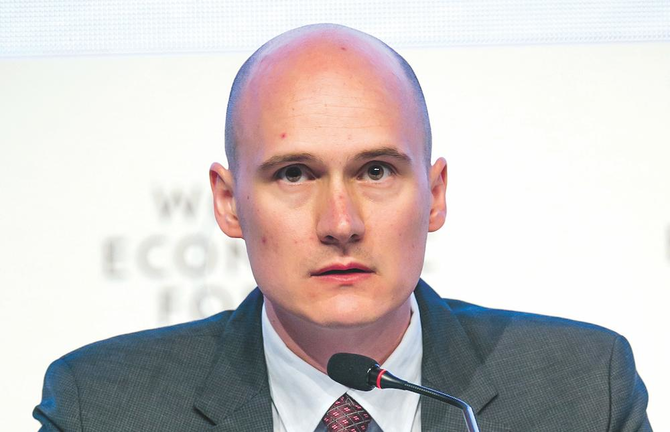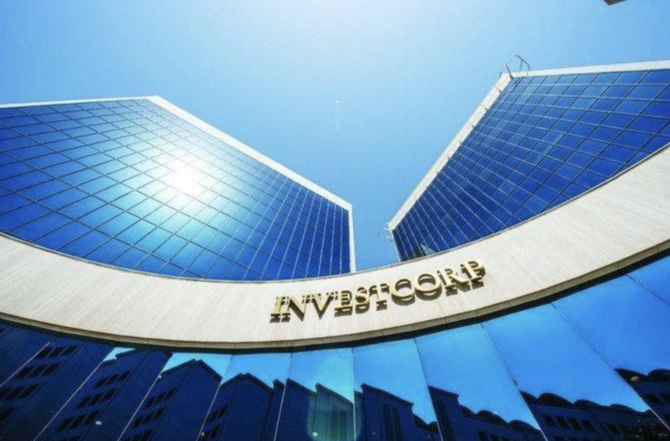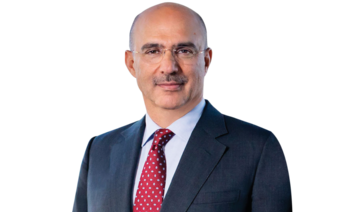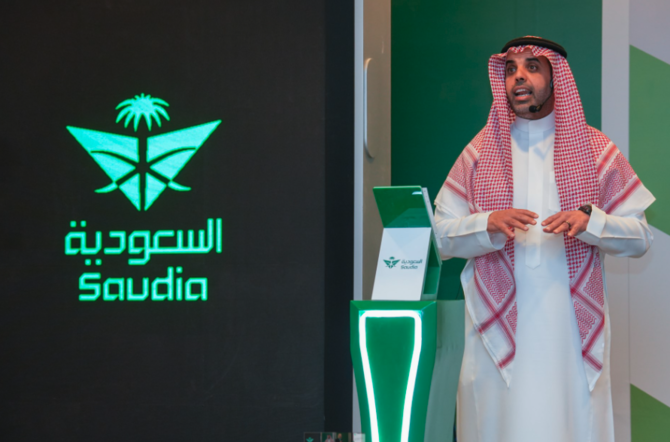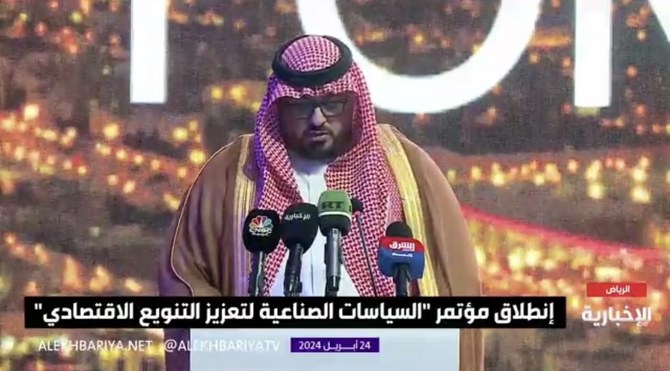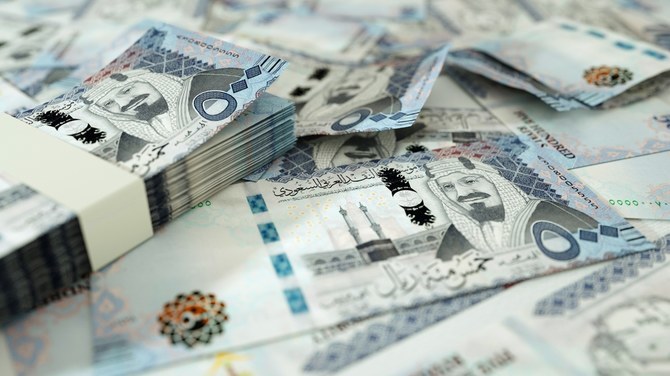DAVOS: Mirek Dusek, senior WEF director, spoke to Arab News on the eve of the summit to reveal what will be on the agenda.
Q: What are the big themes of Davos 2019?
A: The theme of this year’s event is divided into two parts. One is globalization 4.0 and the other is about creating a new architecture for international cooperation. We believe that the world is entering quickly a new wave of “globalization.”
We have had different waves of globalization in our history and as a result, we have become integrated in terms of economies. We have lifted many people from around the world from poverty, which has led to immense economic growth driven increasingly by trade. But we have missed something, which is really that the rewards of this have not been shared equitably within nations in particular. So many people point to real incomes in the US, for example.
The rewards for the average American from globalization stopped back in the 1980s and 1990s. So while we realize that globalization is the reality around us, we believe we are entering a new wave that is driven by technological advancement.
We see the fourth industrial revolution all around us, so we believe we are gathered at a really important time to think through how we fix some of the shortcomings we have had in the past. The other part is how we can make sure that we equip the institutional framework to deal with this reality. What do we need to tweak around trade? What is needed in terms of consultation around climate change?
How do we make sure we have a functioning system of helping refugees around the world? These are the things high on the agenda that are quite hard to answer, but that does not mean we should ignore them.
Q: Not many Davos attendees are on zero-hour contracts. Given all the inequality we see in developed and emerging economies, is there more cynicism about the practical usefulness of events like these?
A: Back in the 1990s, Professor Schwab had a lot of foresight in publishing a piece exactly about this.
How do you make sure despite all the excitement about that wave of globalization that you do not leave people behind.
We all see that within nations, and they can be very diverse, from developed to emerging markets, there is a sense that some people have been left behind and that is a clear challenge for decision makers to face.
This meeting and the organization overall is really around providing a platform to accelerate positive change. If you take health for example, we’ve been working with the Bill and Melinda Gates Foundation.
We see our role as a platform for action by not only political leaders where they provide a policy framework, but also by a lot of the development institutions and business to come together and address some of the deficiencies in the system — like when we identified the deficiency around vaccination.
Q: To what extent is the rise in populism we have witnessed worldwide related to the fourth industrial revolution?
A: There have been other industrial revolutions, eras in which we saw rapid technological change — changing the way people organized themselves or how economies were structured — and so there has always been a level of uncertainty over what this change might bring. We have established a network of centers for technology governance. The sole purpose of that is to be on the front foot and enable governments to catch up with the tremendous development of these technologies. We are also looking at the trends in automation and what it may mean for the jobs of the future. We have a whole piece of work looking at the future of jobs. Nobody knows exactly what it will look like but if we look at past industrial revolutions, the adaptation has been quite remarkable.
Humanity has always found ways to cope with the change and you could argue the upside prevailed. But it is important we don’t underestimate this challenge, particularly in policymaking because if governments don’t have the capacity to react or think through these implications, we could be arriving at a reality that is given to us by random developments.
Q: Davos has always been good at presenting the big questions facing humanity, but what about providing measurable answers?
A: The fourth industrial revolution is an area in which we look for outcomes. I don’t want to pre-empt the announcements, but we are launching partnerships with governments to help them with specific issues. We have already worked in Rwanda with a team that does drone regulation — given how important drones are in that country for the delivery of blood, for example. Of course, we have collaboration with governments and businesses on cyber.
The final thing is around our work with peace and reconciliation. We have a track record for providing a platform here for actors who at least want to explore ideas of how to overcome certain fault lines from conflicts around the world.
This year, we are holding a record number of these meetings that we call Davos diplomacy dialogues. For the conflict in Syria, we are having the UN special envoy for Syria come here and hold a meeting. We are also doing dialogues on Venezuela, the Western Balkans and between Russia and Europe.


